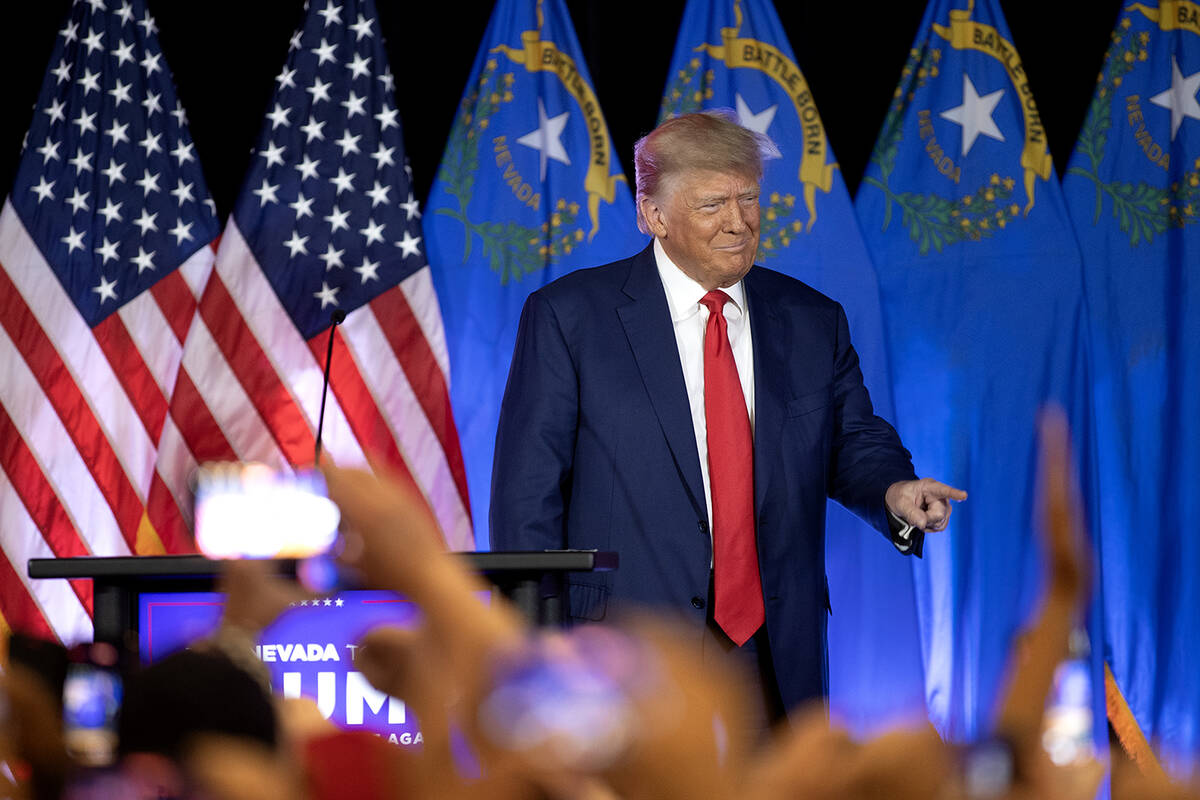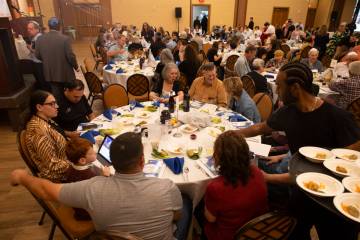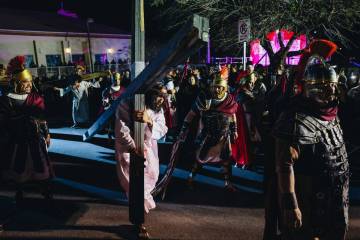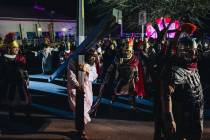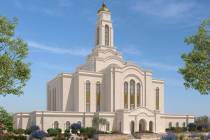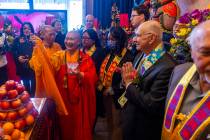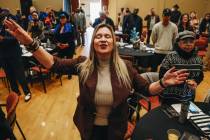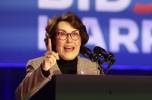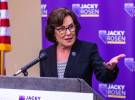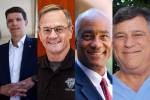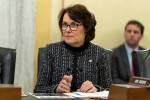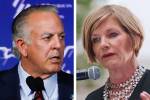How politically active can churches be? It’s complicated
Last month, presidential hopeful and former President Donald Trump held a rally at Fervent Calvary Chapel in Las Vegas. Before that, the chapel hosted a “Make America Great Again” rally where Jim Marchant announced his run for Senate.
In November, Democratic Sen. Catherine Cortez Masto, alongside former President Bill Clinton, spoke to the congregation at Second Baptist Church, and in September, then-GOP gubernatorial candidate and now-Gov. Joe Lombardo held a campaign event at Liberty Baptist Church.
The law prohibits charities and churches from engaging in any political campaign activity, and if they do, they are at risk of losing their tax-exempt status from the Internal Revenue Service.
So how are churches able to host political candidates? The answer: lots of gray area in the rules.
While churches in general cannot be politically active, there are some exceptions, said Dan Lee, a political science professor at UNLV.
As long as churches are neutral and do not explicitly endorse a specific candidate or expressly advocate for the election of or defeat of a particular candidate, they can be politically active, Lee said.
They can hold voter registration drives, for instance, or can bring in candidates to speak. They cannot show favoritism, though, and must give equal opportunity to all of the candidates, according to the IRS.
But Lee said sometimes it can be “kind of obvious” whom those organizations want their members to support.
They might have a voter guide, for instance, showing how each candidate stands on a certain issue. The churches can call it voter education or issue advocacy, Lee said, but they cannot go as far as saying, “Therefore you should vote against so and so,” Lee said.
At Fervent Calvary Chapel in July, Senior Pastor Jimmy Morales told the crowd he was “so blessed to have President Trump” there and that the upcoming elections are the most important.
“We are in a battle for the soul of this nation,” he said. “We are in the battle for the unborn. We are in the battle for the church. … We need Christians that will get involved in the political process and fight to take this country back. And we need a president who’s got our backs.”
Morales, who did not return the Las Vegas Review-Journal’s request for comment, then told the crowd that Trump had done more for the church and more for the unborn than any other president.
His speech “seems to be very much skirting along the edge of what is allowable for tax-exempt 501(c)(3) groups, which this church is,” Lee said.
While Morales “was obviously supporting a specific candidate,” the church can make the argument that it is simply doing issue advocacy and voter education by just stating that Trump did more on Christian issues without explicitly endorsing his candidacy, he said.
These gray areas are seen on both sides of the aisle, Lee said. Conservative, evangelical churches can seemingly show support for a Republican candidate, while some churches have been obvious about supporting a Democratic candidate. For instance, during the Rev. Raphael Warnock’s Senate race, Black churches in Georgia supported his election, Lee said.
What if a church really does cross the line and explicitly endorse a candidate?
A spokesperson with the IRS said that if anyone thinks a church violated the political campaign prohibition, they can fill out a complaint form, and it will be investigated.
There is a question of how strictly the IRS enforces those laws, Lee said.
“It’s pretty rare for a church to lose tax-exempt status, even though they might seem to cross the line,” he said.
Contact Jessica Hill at jehill@reviewjournal.com. Follow @jess_hillyeah on Twitter.



